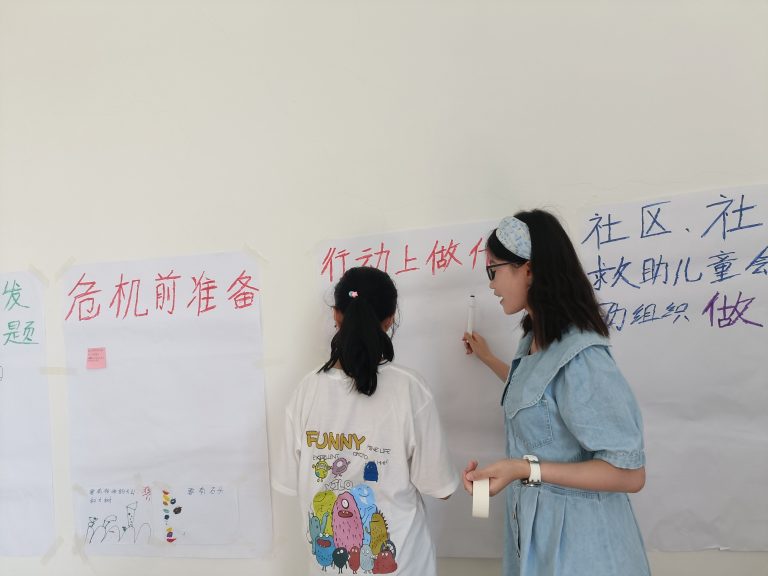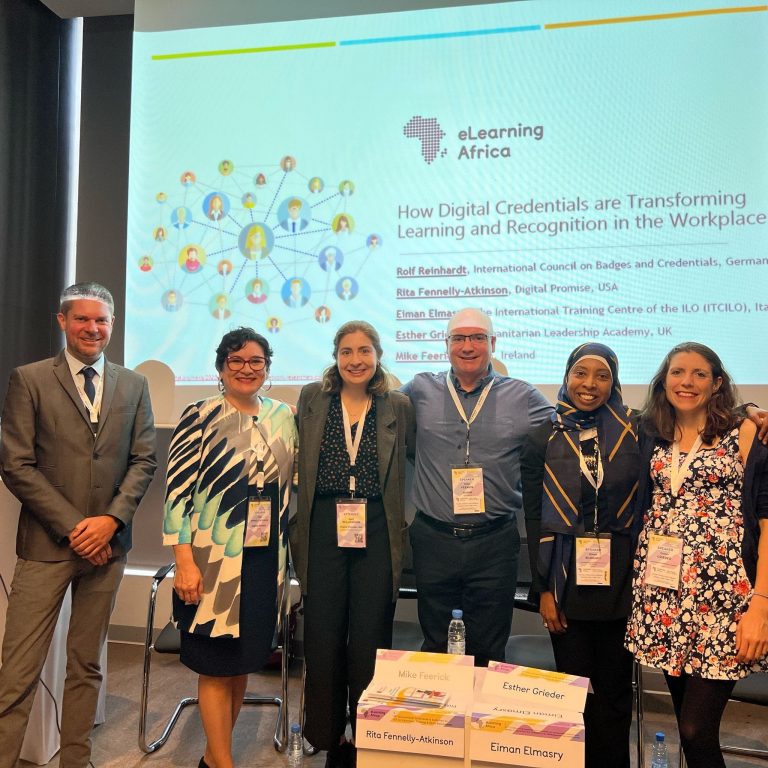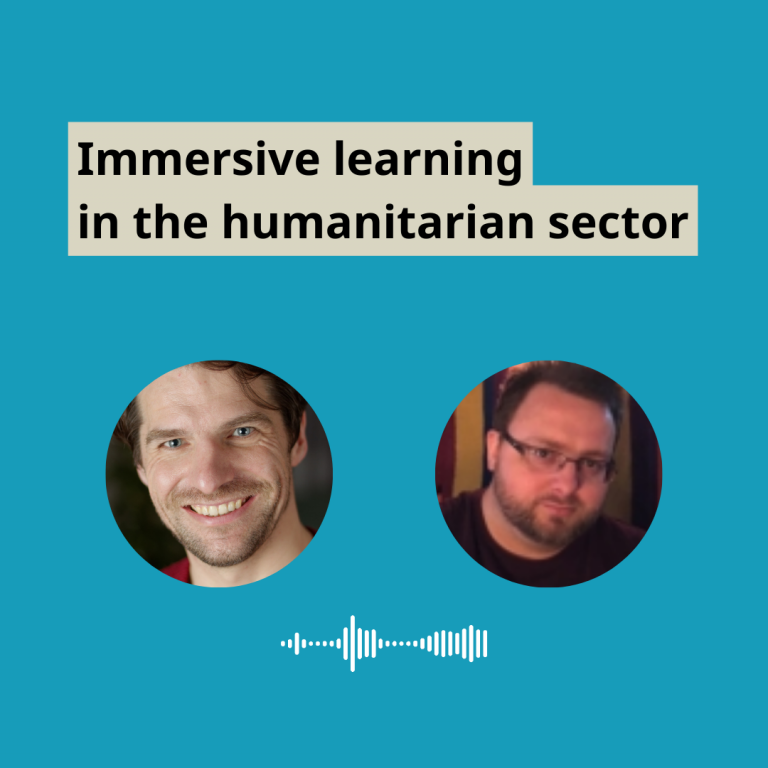
« Solidarity is the political expression of love. And I have hope and faith that we can get to a place that’s equitable for all.”
– Michelle Brillouet
Michelle Brillouet and Tim Carpentier from the Humanitarian Leadership Academy engage in a thought-provoking exploration of Diversity, Equity and Inclusion (DEI) – and why it matters now more than ever, particularly in the humanitarian sector.
In conversation with Ka Man Parkinson from the HLA, Michelle and Tim illustrate why systemic change is necessary by taking us on a personal journey of what DEI means to them, before delving into topical issues including power and decision-making, neo-colonialism and anti-racism.
As committed DEI advocates and representatives, Michelle and Tim share their experiences of creating inclusive work practices – and highlight actions we can take to play our part in creating a humanitarian space that’s diverse, equitable and inclusive.
Read a preview of the conversation below and listen to the full podcast episode now available on Spotify and Buzzsprout.
Can we start by asking what diversity, equity and inclusion mean to you?
Michelle Brillouet
So this is a really good question – and I think it’s important that we perhaps dig into what diversity, equity and inclusion are because sometimes they can be put into the same bucket.
So for me, diversity is diversity of thought, diversity of being, diversity of all the beings that live on this planet and all the different communities. We understand that we are not all the same and we will have different needs – to move beyond the golden rule of treating people how you want to be treated to the platinum rule of how they want to be treated, and how perhaps they need to be treated.
All in all, I think fundamentally what we want is to feel safe. We want to feel respected, treated with dignity and heard. We want to feel a sense of belonging and acceptance for who we are and all its forms in this world.
And when you talk about equity, you know it’s not the same as equality as that is sameness. Equity is fairness, I think, in my humble opinion.
Tim Carpentier
Yes, for me, I think diversity is fundamentally about the valuation of difference. I think Michelle explained it really well there. So it’s really about thinking a little bit about who’s who at the table, who’s making decisions and who’s part of an organisation. Historically in the humanitarian sector – and this goes for a lot of aid where the INGOs who have access to a lot of the funding – have typically been run by cisgender, heterosexual white men. So when it comes to diversity, it’s about thinking a little bit about who’s at the table and who’s making decisions. I think for me that that valuation of difference is really key. And I think the way Michelle explained it was really helpful.
For me, equity is about that process of being fair. We’re not all the same, so we shouldn’t treat everybody the same. It’s about figuring what process and individual actions we need so that people can actually claim their rights.
Our goal should be that everybody can claim their rights regardless of gender, age, sexual orientation, marital status, ethnicity. So equity helps us get there.
You know, a simple way to think about it is if you give everybody the same size pair of shoes. Well, can they all claim their right to actually walk around? No, because you might need a smaller or larger pair of shoes. So we should get people the right size shoes.
And inclusion, I think, is about that meaningful participation. So it’s not just about getting people to the table and opening up decision-making spaces and spaces where people do the work; it’s about ensuring that people can be themselves and be free to be who they are, and participate in a way and have some of that power as well to make decisions.
So really what this comes down to is adapting our work and building in equity so that everybody can participate freely and fully in the workplace, but then also when it translates to doing our work – which is serving marginalised communities around the world.
Listen to the full podcast episode now available on Spotify and Buzzsprout.
About the podcast speakers
Michelle Brillouet (She/They) is a User Experience Specialist at the Humanitarian Leadership Academy, dedicating her days to empowering individuals and organisations through the innovative Kaya platform. Michelle brings a wealth of experience to her work, with a strong background in education, particularly working with at-risk young people and international students.
Michelle is a passionate advocate for diversity, inclusion, and equity, and her expertise in creating safe and inclusive environments that promote mental health and wellbeing is second to none. As an EDI coach, she is committed to driving change in the EdTech industry and promoting psychological safety in organisations.
Tim Carpentier (He/Him) is Digital Learning Lead at the Humanitarian Leadership Academy where he supports a team to design and develop digital learning resources for frontline humanitarian practitioners.
He has a technical background in gender equality, with a particular emphasis in humanitarian settings and holds an MA in International Humanitarian Action. Tim joined the HLA in 2020 and has also undertaken work across the Humanitarian Department at Save the Children UK integrating gender equality into its work.
Ka Man Parkinson (She/Her) is Communications and Marketing Advisor at the Humanitarian Leadership Academy. She joined the HLA in 2022 and holds a background in communications and marketing in the education and NGO sectors.


